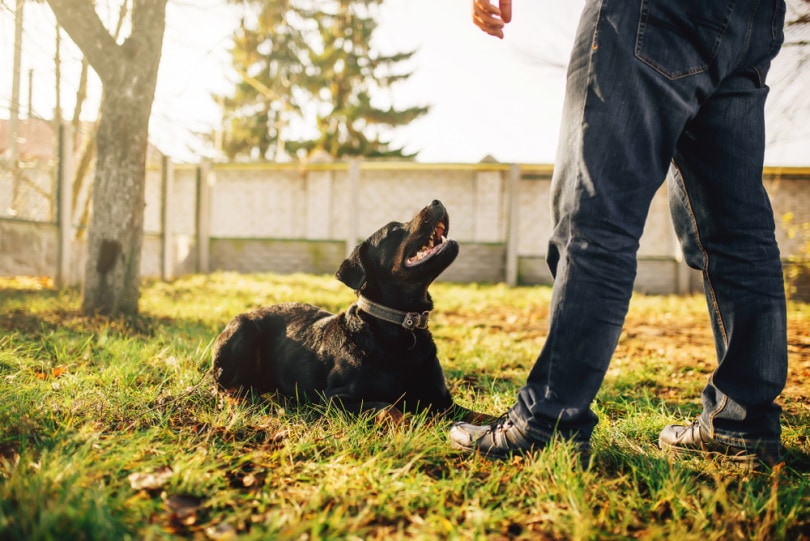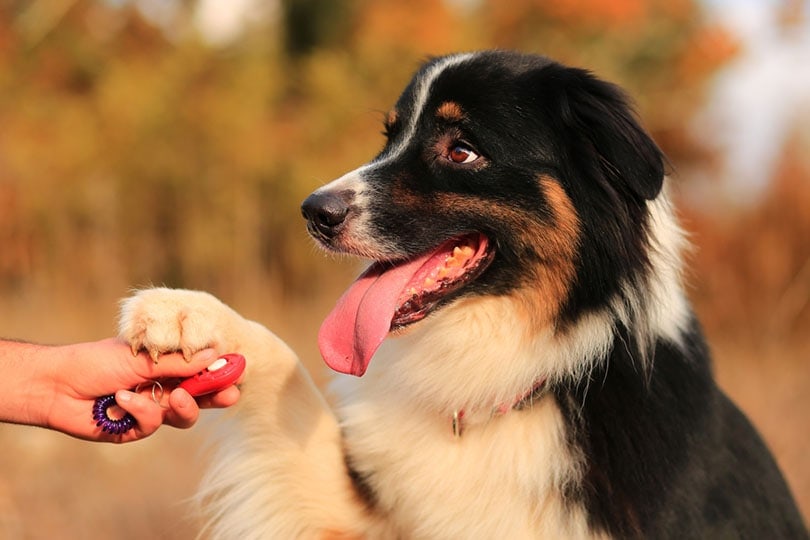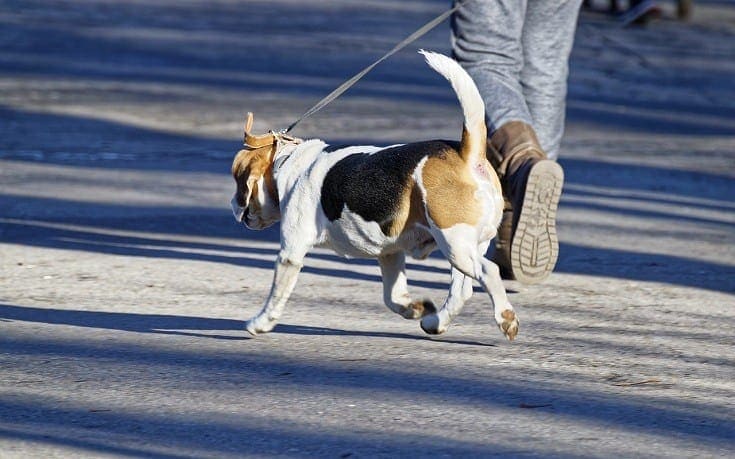Do Dogs Learn From Their Mistakes? Explaining Canine Behavior
Updated on

Just like humans, dogs make mistakes. When we are born, we haven’t a clue what’s right or wrong, and we have to be taught such things. Puppies are no different. Puppies do not come into this world knowing they shouldn’t pee on the rug or eat the hamburger you left sitting on the coffee table. They have to be taught that such things are a no-no.
Some dog owners wonder if their dog is capable of learning from its mistakes because the dog may repeat the same mistakes time and time again. So, can dogs learn from their mistakes? The answer is yes, they can! However, they will only learn from their mistakes if they are properly trained. Knowing how to properly train your puppy will give you desirable results as the dog grows into adulthood. In this article, we’ll explore these topics and other valuable information.
How Do I Properly Train My Dog?
If your puppy or dog is still making the same mistakes over and over, it’s likely due to insufficient training. Establishing effective training methods is how a dog learns from their mistakes. Keep in mind that some dogs are easier to train than others, and some may take more time, which means more patience on your end. Take a look below at some effective training tips you can put into play so that your dog learns from its mistakes.
1. Clicker Training

Clicker training is a terrific tool to use to keep your dog’s attention. They are easy to carry around because they are small and compact, and they don’t cost a fortune.
Clicker training is a form of positive reinforcement that rewards your dog for wanted and desirable behaviors. When your dog does something you like, simply click the device and reward them with treats for their good behavior.
2. Obedience Training
Obedience training is another method of rewarding positive behaviors. Obedience training can be in the form of rewarding desired behaviors with treats, affection, or praise.
To get the most out of this form of training, you’ll need to know which type of reward your dog yearns for the most. If your dog loves treats, use treats. If it craves affection and praise from you, make sure you give plenty of it when your dog does something right.
3. Provide Adequate Exercise

Bored dogs can get into mischief, and if you exercise your dog, both mentally and physically, your dog will be less likely to get into trouble. Mental stimulation is just as important as physical stimulation, and you can provide this for your dog with puzzles and games. Mental stimulation is fun for dogs, and it keeps their brains sharp.
How Do Dogs Apologize?
Even though dogs cannot talk, they can show their emotions through body language. If your dog does something wrong, it may tuck its tail between its legs or lower its head and ears. Your dog may also avoid eye contact with you and cower. In reality, these types of body language are more of a submission rather than a “sorry,” but hey, we’ll take it!
Can You Hurt a Dog’s Feelings?

Dogs have emotions, and yes, you can absolutely hurt your dog’s feelings. Dogs can sense your mood, and if you’re upset or sad, your dog will know, especially if you’re upset with the dog itself.
Dogs’ emotions are similar to that of a 2-year-old human child, and their little feelings can get hurt if you don’t want to play, are not giving enough attention to them, or not spending enough time with them. You may not be intentionally hurting your dog’s feelings, but those things can certainly affect your dog.
Why You Shouldn’t Yell at Your Dog
Yelling at your dog will only instill fear and anxiety over time and does nothing in the way of training your dog. Instead, positive reinforcement is key. Never hit your dog, as that is completely unacceptable and against the law. It’s OK to use a firm and stern tone while training, but yelling is not the answer. Yelling will only make your dog afraid of you, and your dog will not understand why you’re yelling.
Your dog may think of your yelling as barking, and your dog may bark even more, thinking it’s a game. If your dog chases something, and you yell, the dog may interpret that as encouragement, which only makes matters worse. Speaking positively and calmly will be much more effective.
Final Thoughts
Yes, dogs can learn from their mistakes, but only if properly trained. While training your dog, remember to use positive reinforcement and the other methods we’ve mentioned above. Never, ever yell at your dog, and absolutely under no circumstances should you ever hit your dog. The key is making your dog understand the mistake to avoid it again in the future. Remember, too, that dogs are not humans but are smart enough to understand what you expect of them through proper, safe, and fun training methods.
Featured Image Credit: Nomad_Soul, Shutterstock












